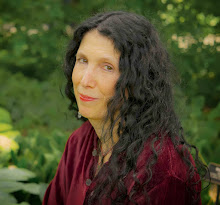I wish I were a stranger to grief, but alas, like many people, I'm not. But what helps and heals? Sometimes it's story. Susan Salluce is a grief therapist who has written a wonderful novel that explores mourning, and I'm honored to host her here. Thank you, Susan!
What inspired you to write Out of Breath?
As a full time therapist who specialized in grief, I had several
clients wrestle with reading traditional grief books—they were often clinical,
too removed, or even the title was so upsetting that they wouldn’t open the
book.
I’d recommend novels that had elements of grief in them—books that touched my soul and whispered something special.
It was about four years into my specialty that I started showing signs of burn out—or what professionals call Compassion Fatigue—wishing clients would cancel, an inability to separate work form home, carrying my clients problems around in my head, somatic problems (insomnia, increased headaches), difficulty concentrating, and so forth. I started practicing at twenty-two, and I was turning forty: what else could I do? This was my passion, my role, my gift, my career.
One day during a consultation meeting with a group of
therapists, we focused on our personal growth rather than our cases. One of my
colleagues posed the question: “What would you attempt to do if you knew you
could not fail.” Like a Freudian slip, I exclaimed, “I’d write a book!”
Everyone looked at me with surprise—this was news. I’d never
shared that writing was my first passion, a secret desire whose flames I’d
learned to simmer because I swam with self-doubt. What if I could write a grief
story to share with others?
My supervisor saw the flame in my eyes and advised me to take a month off to fan that flame. At the end of my one-month break, all I had to do was walk into her office—she knew I was resigning. I took two months to do closure/reassignment with my cases, and nine months later I completed my first draft of Out of Breath.
What’s your writing life like, your process?
My writing life is passionate, stream-of-consciousness,
emotional, and very therapeutic. I lack discipline at times, but try to write
every day, even if it’s my blog, poetry, or polishing my new manuscript. When I
wrote Out of Breath, I even dreamt scenes,
waking up to write details down on a pad next to the bed. This is what is
happening with my new book, Dancing My
Father Home, a fictional memoir about my life with my father.
I don’t use an outline, but I have a general sense of what
is going to happen. Like any artist, though, I think the joy is the creative process. Often I will
be writing and it is as though the character is writing his or her own story
and my fingers are simply obeying. At the end of a scene, I often sit back and
think, “Wow, I didn’t see that coming!”
So much in the book is about grief. What have
you learned in your work as a grief therapist that found its way into your story?
That’s a wonderful question. Lots! First, that parents who have tremendous loss are resilient. For the past several years, I’ve volunteered with Friends for Survival, a group dedicated to those who’ve survived a suicidal death. It feels as though that first year will destroy you—that the grief is insurmountable! I think this is what I wanted to show in Out of Breath, and why the novel covers a calendar year.
I also learned that people are prone to make impulsive, dangerous, and life-altering decisions when they are bereft, which can have dire consequences. We are not ourselves when we grieve, and I believe we ought to have a piece of paper that we hand people from time-to-time that says, “Hi, I’m ____. I just lost my ____, and so sometimes I will be doing some crazy %#$@.” It’s true! This doesn’t mean we get to behave recklessly and not be accountable for our behavior; quite the contrary. However, I constantly advice people to not make life-changing decisions during those first six months, possibly a year, after a death, because life is so upside down and it’s tempting to shake up one’s world to cope with the emotional hurricane of loss.
What’s obsessing you and why:
My latest project, a fictional memoir, Dancing My Father Home, has me riveted to my office chair. My father died just two days short of his 83rd birthday this past year. I was working on another writing project, and it was just falling flat…no emotional connection happening for me. I had always encouraged my clients to journal about their grief, so I took my own advice, and my journal turned into a manuscript.
Dancing My Father Home is not just my story, though. It’s a novel that will help others who grew up in a chaotic home environment. I had a complex love relationship with my father: daddy the nurturer who snuggled with me, read me bedtime stories, played catch in the street, and tucked me in for bed, versus my dad the violent abuser of my mother who couldn’t hold a job, and would disappear for days at a time, leaving me with an emotionally vacant mother, both of us wondering when he would return. It’s an emotional project to write, therefore, I’m taking it slow, and giving myself the liberty to fictionalize it when it gets too close to home.
Thank you so much for this opportunity to share what is on
my heart. I love my new career path as an author. What brings me the most joy
is hearing that someone who is grieving has been touched by my work and feels
less alone in their grief. Blessings!






No comments:
Post a Comment